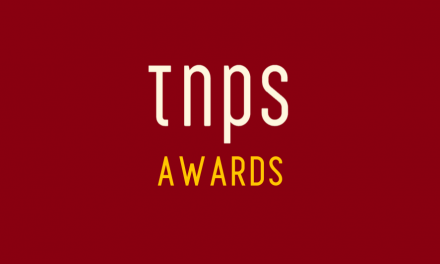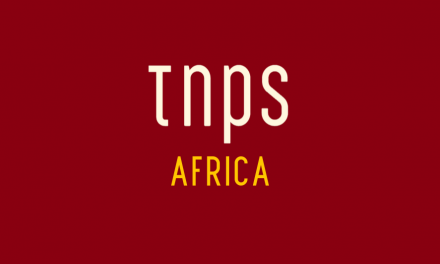All told, there are over 600 million Africans online in 2023, and around the world a total of 5 billion people have a device in their hands that, by definition, could be used for reading African ebooks, listening to African audiobooks, reading African literature online, and bringing global revenue and recognition to African publishers and African authors.
This week Publishing Perspectives updates us on the recent all-important rights event at the Nairobi International Book Fair.
It was Kenya’s first hybrid trade-public experiment for the book fair, as covered pre-event by TNPS.
Olivia Snaije brings us up to date on the trade element. Head over to Publishing Perspectives for the must-read full essay. Some selected excerpts below, along with bracketed TNPS commentary.
“Goretti Kyomuhendo, a Ugandan author, publisher, and founder of the African Writers Trust, said it was the first time since she’d attended a book fair in Zimbabwe in the 1990s that she’d seen a rights section at a fair on the continent.”
(MW – It is a telling point that probably more rights deals with foreign publishers were made by African publishers at Sharjah this year than happened across the continent itself.)
~ ~
“Several literary agents were present, including Amsterdam-based Bieke van Aggelen of the African Literary Agency.
“Van Aggelen said she was impressed by the quality of the writers she met. “I was interested to meet authors,” she said, “and was pleasantly surprised. They were well-prepared and asked really pertinent questions. They might not know about all the clauses in a contract, but they knew exactly what they wanted.”
(MW – My experience is that many African and other emerging market publishers do not fully understand the huge changes in international publishing over the past decade or so, and are still locked into legacy publishing models inherited from the colonial era. This is something we’ll be tackling head-on at TNPS next year.)
~ ~
“(Van Aggelan) said she found the publishers less interesting and informed and thought it would be interesting if they could diversify their business strategies from publishing just textbooks to include fiction, making an effort to reach out to local authors.”
(MW – The latter sentiments are a TNPS op-ed in their own right. So many publishers in the emerging markets are locked into the textbook trap, and missing out on revenue and expansion opportunities both at home and abroad. But that in turn needs education policy redirection. So many schools teach children to “read to the test” (to pass an exam).
My school here in The Gambia is almost unique in encouraging children to read for pleasure, and teachers here are amazed at how strong our children’s reading skills are because the children actually enjoy reading.)
~ ~
“A panel session called “Moving African Content: Rights Trading Perspectives”, Raphaël Thierry Thierry of Ægitna Literary Agency, said he was very happy ‘as a Francophone to come to an Anglophone fair. It’s time for us to circulate differently. We Francophones lack a lot of connections with other languages in Africa.’ “
(MW – Again this is an issue TNPS plans to address in 2024 as part of our Africa programme. African publishing is dominated by the English, French and Arabic languages for obvious historical reasons, often at the expense of indigenous languages.
Education policy has much to answer for. But these international languages should be considered a valuable asset, alongside and parallel to indigenous language publishing, that can potentially allow Africa’s publishers to reach across the continent and beyond.)
~ ~
“Intellectual property lawyer Sharon Wata of the Kenya Copyright Board stressed the importance of publishers using official contracts that cover all areas, (but said) that the Kenya Copyright Board offers free webinars and workshops, but that publishers don’t attend.”
Kenya’s East African Educational Publishers CEO Kiarie Kamau, MKIM added that publishers are ” ‘keen to train our editors in editing, but we gloss over the intricacies of contracts.’ Publishers, he said, often don’t exploit rights including those from film or theater out of fear of losing control to ‘rogue publishers.’ “
(MW – Even ten years ago the opportunities for African publishers to exploit their IPs internationally was limited. Audio, streaming, online-reading, digital comics, even ebooks were still either in their infancy or being constrained. Access to digital publishing was limited by the reality that the big western ebook players simply did not operate in most of Africa.
But while that’s still true – try accessing the Kindle store or Google Play Books or Apple Books from most African countries – alternatives abound. Look at the way YouScribe has single-handedly transformed Africa’s digital books streaming sector, or the way Ama Dadson‘s Akoo Books Audio has opened up the audiobook sector on the continent. And of course the Kenyan rights session at the Nairobi International Book fair only exists because of the stellar work of eKitabu.)
So much more to read in Olivia Snaije’s OP over at Publishing Perspectives.
But let me wind up this post with a reminder of the digital statistics many African publishers seem unaware of, and that inhibits them from embracing the digital opportunity.
In 2010 there were just 53 million people online across the entire African continent. Today Egypt alone has more internet users than that. And Kenya is not far behind, up from 3 million internet users in 2010 to almost 47 million today.
All told, there are over 600 million Africans online in 2023, and around the world a total of 5 billion people have a device in their hands that, by definition, could be used for reading African ebooks, listening to African audiobooks, reading African literature online, and bringing global revenue and recognition to African publishers and African authors.

Opportunity abounds. Understanding of that opportunity, and understanding how that opportunity might be exploited, as we see from the Kenyan rights fair, is still sorely lacking.
African Publishers Network (APNET) and and other publishing organisations are doing their best to bring about that understanding, but there’s still much to be done to enable Africa to take its rightful place at the international publishing table.




